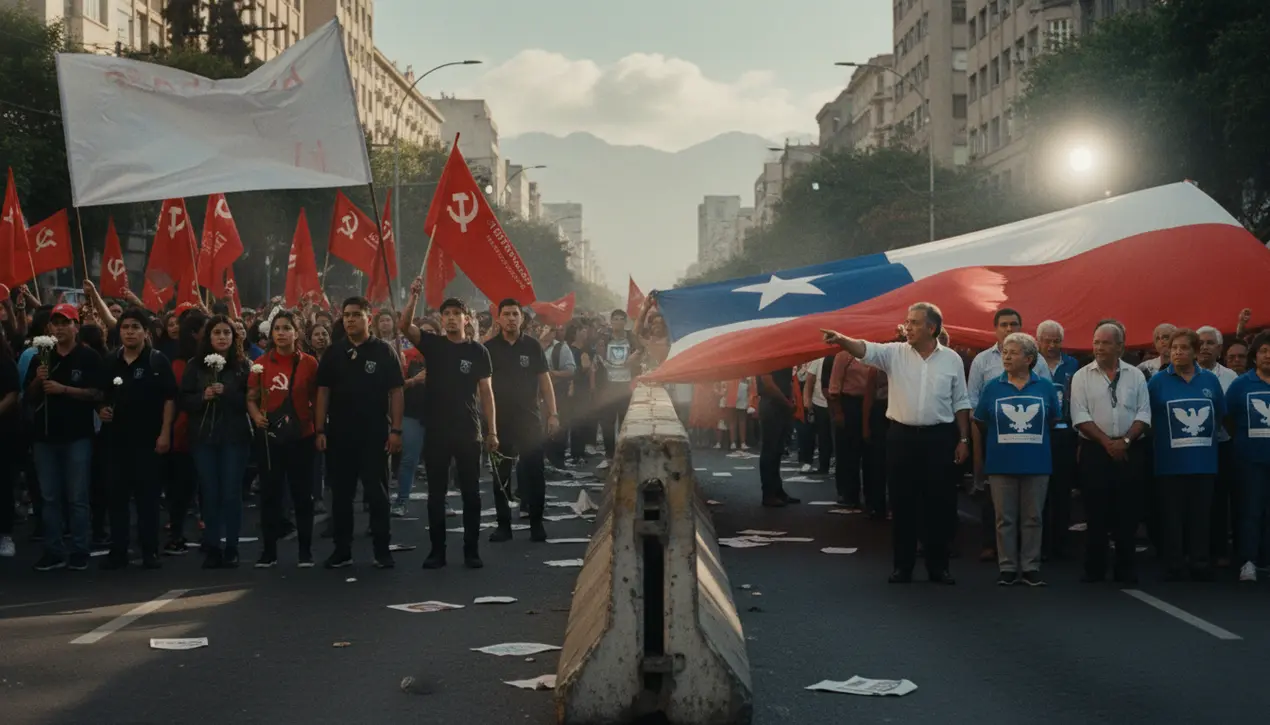
PoliticselectionsPresidential Elections
Chile's Presidential Run-Off Pits Communist Against Far-Right Candidate.
RO
Robert Hayes
2 hours ago7 min read
The political landscape of Chile has fractured, setting the stage for a profound ideological confrontation this December as the Communist Party's Jeanette Jara prepares to face far-right stalwart José Antonio Kast in a presidential run-off that echoes the starkest political divides of the 20th century. This second-round contest, emerging from a fragmented first vote where no candidate secured a majority, is not merely an election but a referendum on Chile's very soul, pitting a vision of deepened social democracy against a platform of hardline conservative nationalism.Kast, founder of the Republican Party and a figure often compared to Brazil's Jair Bolsonaro for his unapologetic rhetoric on law and order and immigration, has mobilized a base weary of crime and the perceived excesses of progressive social reforms, advocating for a rollback of state intervention and a firm hand reminiscent of the Pinochet era, a period from which his own political lineage partially descends. On the opposing flank, Jeanette Jara, representing the leftist Approve Dignity coalition and the long-marginalized Communist Party, champions a platform of expansive social welfare, constitutional reform to enshrine social rights, and a state-led economic model aimed at dismantling the neoliberal structures that have defined Chile since the 1980s.This clash is the direct consequence of the 2019 social uprising, a massive protest movement against inequality that initially paved the way for a constitutional convention to replace the Pinochet-era charter, a process whose recent rejection by voters has created a political vacuum now being filled by these polar opposites. The centrist forces that have governed Chile for much of its post-dictatorship history, embodied by the incumbent Sebastian Piñera, have been decisively sidelined, revealing a populace deeply dissatisfied with the status quo and demanding radical change, albeit in diametrically opposed directions.Analysts are drawing parallels to other global populist surges, where electorates, battered by economic uncertainty and social fragmentation, gravitate towards strong, clear ideological poles, forsaking the nuanced compromises of the political center. The international implications are significant, with a Kast presidency likely aligning Chile more closely with other right-wing governments in Latin America and adopting a skeptical stance towards regional bodies, while a Jara victory would signal a firm leftward pivot, potentially strengthening ties with Cuba, Venezuela, and Mexico's Morena party.The outcome will also determine the fate of critical domestic policies, from tax reform and pension system overhauls to the management of the world's largest copper industry, with Jara advocating for greater state royalties and national involvement and Kast pushing for private sector liberalization. As Chileans prepare to return to the ballot box, the nation stands as a bellwether for a continent, and indeed a world, grappling with the resurgent battle between collectivism and individualism, between the memory of past revolutions and the anxieties of an uncertain future.
#Chile
#presidential election
#run-off
#José Antonio Kast
#Jeanette Jara
#far-right
#Communist Party
#featured
Stay Informed. Act Smarter.
Get weekly highlights, major headlines, and expert insights — then put your knowledge to work in our live prediction markets.
Related News
Comments
Loading comments...
© 2025 Outpoll Service LTD. All rights reserved.